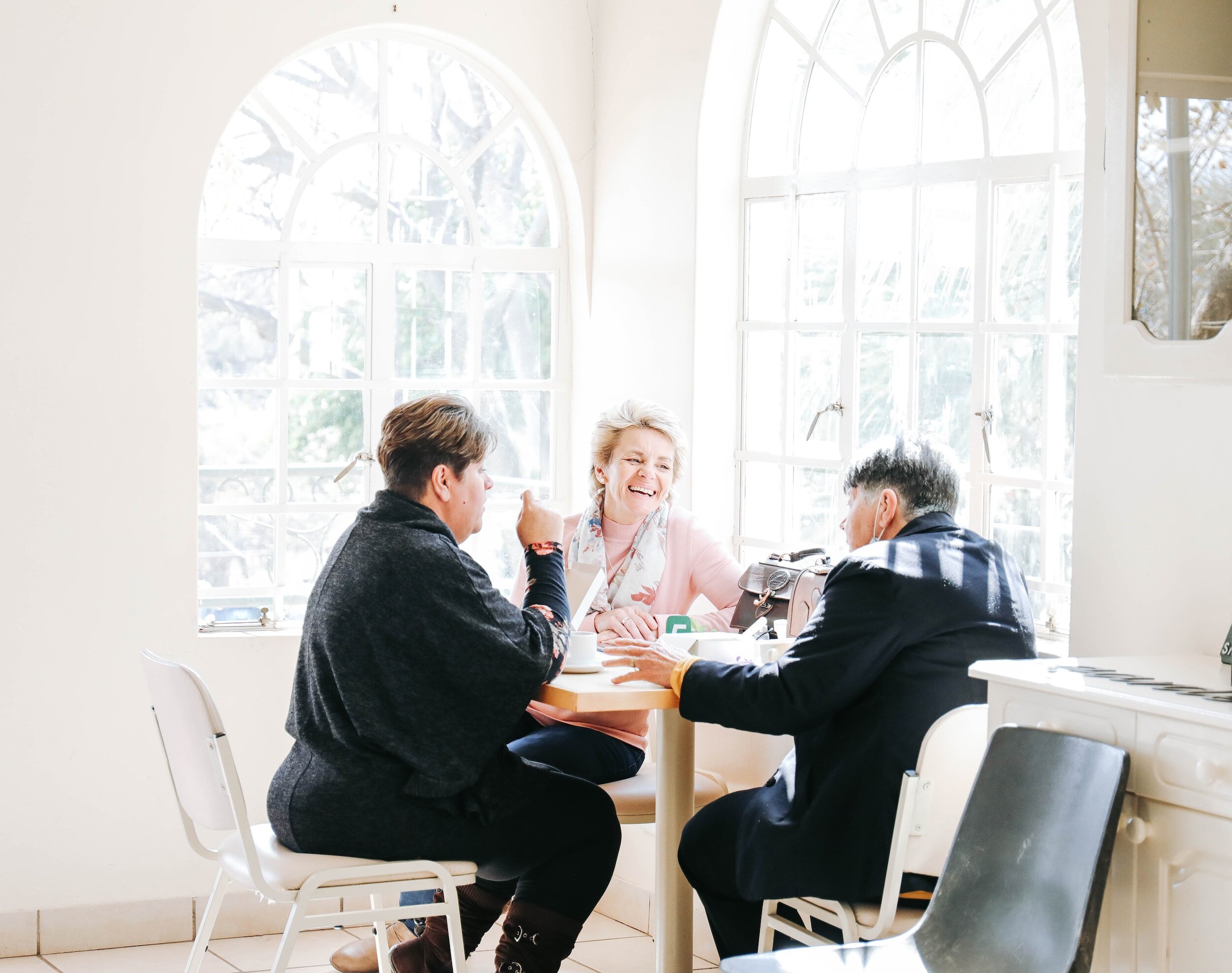I am dedicated to working with all people in ways that celebrate the unique ins and outs of individual personalities and histories. Much of what brings people to therapy involves struggle and suffering. However, through connection and collaboration it is indeed possible to look at even the most painful, isolating experiences and get to a place of healing and movement. So often, difficult life experiences, relationships and patterns cause us to feel alone, stuck and hopeless. Bringing the hard parts of life into the light together helps us understand them and reduce their grip upon us.
Clinically I draw from ways of understanding mental health and nurturing wellbeing that are strongly influenced by Psychodynamic Therapy, Emotion-focused therapy and Internal Family Systems Therapy. I also practice trauma-centred therapy which recognizes multiple forms of trauma and places them at the centre of therapeutic work. If there is one thing that I have learned working in mental health for the past 10 years it’s this: Nothing is too scary, too disturbing or too shameful to talk about. You don’t need to feel embarrassed, ashamed or afraid. We will navigate your difficulties together.
I am a Registered Social Worker with an MSW from Wilfrid Laurier University, an MA in writing and rhetoric from Miami University of Ohio, and an elementary teaching certificate from the University of Strathclyde in Scotland. I bring the whole of my background to bear in working with clients. Having taught both adults and children helps me relay information in a variety of ways, including visual and creative means. Metaphors can also provide a good starting point for making sense of complex experiences. And a quick forewarning that I bring my own sense of humour into the counselling relationship; I welcome you to bring yours too!
Hi, I’m Heather.
My Therapeutic Specialties
Childhood Emotional Neglect
One of my main therapeutic specialties in clinical practice is in Childhood Emotional Neglect (CEN). The difficult thing about CEN is that its impacts upon people’s lives are often hard to identify. Many people grow up with their external needs met adequately or even met well, but in an environment where their emotional needs were ignored, unrecognized, under-recognized or discouraged.
You may have grown up telling yourself that you had a fine or even a great childhood. This assessment might be based on what your parent(s) could offer you materially–eg. A nice enough house, clothing, enough food, some financial support, etc. However, having your material needs well met can make it incredibly difficult to pinpoint what was lacking in your upbringing and why you might feel empty, insecure, depressed, or set apart from other people.
Signs that you might be impacted by childhood emotional neglect may include:
Difficulties with Self-Regulation Including Substance Use, Spending, Eating, Daily Habits
A Feeling of Not Knowing Yourself, Your Preferences and Aptitudes Very Well
Hiding your More Troubling Feelings (e.g. sadness, anger) from Others, and Isolating Yourself When You Have Such Feelings
Workaholism and/or Perfectionism and Difficulty Identifying your Feelings and Connecting with Other People
Low Self-Esteem and Difficulty Connecting with Other People
Men’s Mental Health
For various personally and culturally driven reasons it can be hard for male-identified people to access support for their mental and emotional health. While social norms are changing, it can be especially hard for men to access support if they grew up being conditioned to believe that men don’t or shouldn’t talk about their struggles. Financial and work pressures, low mood, shame around experiences of abuse, neglect, bullying, and other challenges can lead to men living with tremendous amounts of stress and pain. Self-loathing, anger, addictions, and isolation are just a few of the ways that this pain might manifest.
Men might also struggle with the challenges of being in relationships and parenting. Close relationships and parenting tend to draw out of us the things that we attempt to keep hidden and protected. The intimacy and vulnerability of close relationships make them beautiful, but also risky in their ability to touch upon attachment wounds and insecurities. Conversely, the lack of a romantic relationship, losing a relationship or not having friendships can lead men to believe that they are unworthy of love or are unattractive to others.
I can assure you that you do not have to struggle alone, nor feel ashamed or embarrassed of yourself. You deserve and have always deserved love, validation and protection from harm. We can work together to make sense of your challenges and plan for a healthier and more hopeful future.
Ready to take the first step?
Book a free 15 minute consultation to see if we are a good fit.
Relationships & You
The significance of counselling in the realm of relationships extends far beyond romantic entanglements, encompassing a diverse array of connection dynamics. Whether grappling with familial intricacies, tough spots with friends, navigating the complexities of workplace relationships, or unraveling the threads of romantic partnerships, counselling offers a versatile and invaluable resource. By recognizing that relationship challenges can manifest in various forms—be it with family members, friends, colleagues, or romantic partners—individuals gain the insight and tools needed to navigate the unique nuances of each connection. The beauty of relationship counselling lies in its ability to adapt to the intricacies of different relationship types, fostering understanding, effective communication, and personal growth across the spectrum of human connections.
Understand your Counselling Journey
1
Go to my booking page to book a free 15 minute consultation to ensure that I am the right fit for you.
2
Decide upon a routine of appointments that fits your needs, schedule and finances.
3
We will work together at your pace to address what brings you to counselling.











